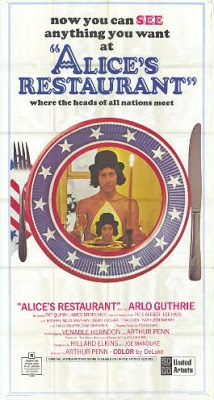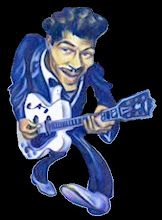The first part of the movie, gives you background leading up to Thanksgiving and this is the part that plays most like a documentary. Around the half way point of the movie, we get the "Alice's Restaurant Massacre" part which makes up the middle part of the film. For anyone that doesn't know the story, it's all about Arlo and his friend trying to dump trash on Thanksgiving Day. Finding the dump closed they illegally dump their trash and the next day are arrested for littering and are brought before a blind judge. Interestingly enough, the main cop, Officer Obie, and the judge are actually played by themselves. This arrest leads to Arlo being rejected by the Army because of his criminal record. This part of the film is hilarious and will make you want to be sitting on the "Group W" bench with Arlo (you'll have to watch the movie to find out why this is so funny)
The last part of the movie is boring, as the plot starts to revolve around the lives of Alice, her husband Ray, a heroin addict friend, and a motorcycle race. Once Arlo is no longer the central character, I lost interest and found it a hard to get through the remainder of the movie. Still, I would highly recommend Alice's Restaurant, especially to you old hippies...but then again, I know you've already seen this film...so I'll just highly recommend it for everyone else. Not only is it well worth seeing for the comedic parts, but it also serves as a time capsule of the period in which it is set (late 1960s)

















